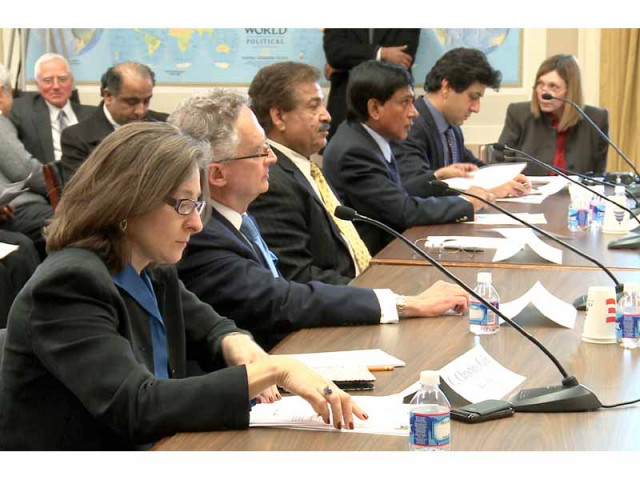A hearing on Balochistan
The mere fact that the US Congress saw fit to conduct these hearings shows how dire the situation really is.
There is reason to be both optimistic and cynical about hearings by the US Congress’s Foreign Affairs committee on the situation in Balochistan. The hope is derived from the fact that the state’s violations of human rights in the province, including alleged killings, abductions and torture, have generally been ignored by the international community and so, any publicity given to the issue can be seen as a net positive since it opens the prospect of a much-needed change in policy. At the same time, however, the sudden concern by some members of the US Congress about Balochistan could be part of larger strategic concerns that may have little to do with human rights and international law. The Americans have always been suspicious of Chinese investment in the region, including their involvement in the port of Gwadar and in the country’s energy sector. The proposed gas pipeline from Iran is also supposed to run through Balochistan. This, apart from the embarrassment caused to the federal government by the hearing having taken place, may explain the Foreign Office’s denunciation. Even the US State Department, acutely aware of how sensitive this issue is, distanced itself saying that the hearing did not reflect the policy of the US government and that the issue of Balochistan should be solved through internal negotiations.
Having said that, the mere fact that the US Congress saw fit to conduct these hearings shows just how dire the situation in the province really is. Human rights activists and experts apprised the committee of the violations taking place in Balochistan. A representative of Amnesty International even called for the Leahy Amendment to be applied to all military units operating in Balochistan. The said amendment is commonly applied to security assistance programmes to prevent foreign aid from being used to further human rights abuses. While one can understand why the Pakistan government is upset about the hearing, a better response may be to change in existing policy on Balochistan in a manner that the wishes of the local population are factored in. This is the best way of ensuring that the situation improves and that separatist feeling is quelled. That, clearly, is an end that should not even require prodding by a committee of American lawmakers.
Published in The Express Tribune, February 11th, 2012.


















COMMENTS
Comments are moderated and generally will be posted if they are on-topic and not abusive.
For more information, please see our Comments FAQ